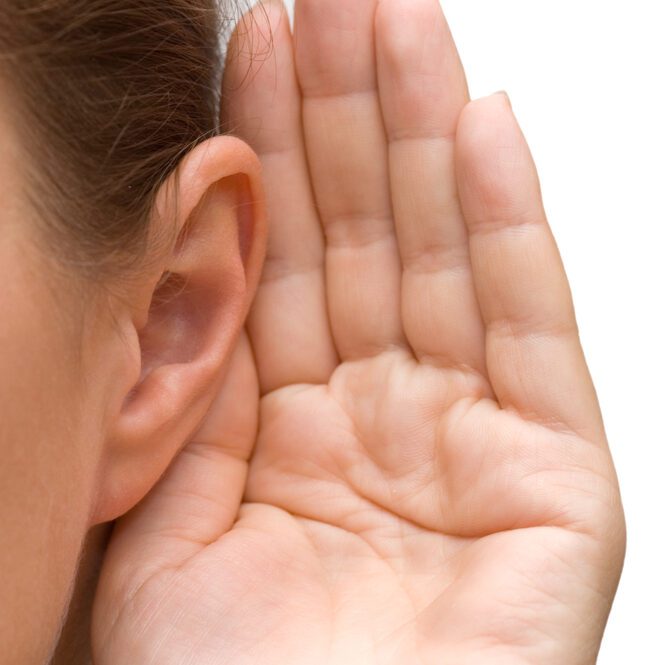When we learned that both our girls had hearing impairments, we had to adapt our surroundings to achieve the best possible acoustics and listening environment. Anyone wearing Cochlear Implants will always have to face challenges with auditory input and identifying one sound from another.
We had to minimise any kind of distracting noise (where we could control it ourselves):
- The greatest sinner of all: the TV! It was switched off, whenever the children were awake. (today, they are older and are allowed to watch tv on their own, providing that nothing else is going on around them at the same time)
- The dishwasher and washing maschine are only running when the children are either sleeping or out of the house.
- Switch off the radio
- When we visit family and friends (where the tv or radio is playing in the background), we always ask them to switch it off. In the beginning, my own family were very unsympathetic and thought that the children should learn how to live with background noise. (just: NO!)
- In our home, we layed out small carpets under the dining table, sheepskin rugs in the chairs and so on.
- Picture frames on the wall also helps to improve acoustics in the room.
- Sing together in the car and switch off the radio!
Suddenly, I myself (as a normal hearing person) became sensitive to noise
I have never been especially sensitive when it comes to noise and I have never realy given it much thought. But suddenly, I became aware of the the different kinds of noise that surround us everyday in our own home and just everywhere in our daily lives. It pains me to think about how this affects our girls – and indeed anyone wearing a hearing device: elderly people with hearing aids or children with recurring ear infections. After we had accomodated ourselves mentally and practically to having less noise in our surroundings, I found myself becoming more and more sensitive to noise, at birthday parties, restaurants and any kind of larger gatherings – I withdrew myself and became quiet and tired. I felt dazed and suddenly needed breaks from the noise. My hearing is completely normal (my husband would probably describe it as extremely well-developed) and therefor I have come to wonder why we don’t focus more on better acoustic environments in our society. Constantly, we see new buildings designed to look beautiful and modern. Visually stunning structures that win praise and awards. But why are these buildings designed to look good when any noise bounces back from concrete surfaces, making the acoustic environment unbearable to stay in? Recently, we were at a meeting in a local authority building – the conference rooms were all made of glass, facing a large space, where everybody could see one another. I found it completely impossible to focus! My attention kept wondering to the other conference rooms where I could observe what other people where doing. These days, we design buildings and environments, that are slowly driving us up the wall! Background noise and noise in general, affects our attention to speech and ability to hear what is happening around us. A normal hearing child will develop 90 % of their language skills, by hearing and listening to their surroundings but what if there is simply to much interference? Just imagine, if every school, day care center, office and work place where designed to ensure the best acoustic environments as possible – places to develop, live and learn.
Noise affects us more than we realise
Noise affects our physical condition as well as our mental state. If your hearing is not optimal, you may become depressed, insecure and reserved and elderly people have higher risk of developing dementia. The ability to hear is closely connected to your quality of life and self-condidence. Even though we are not always consciously aware of the noise around us (i.e. traffic), it affects our sleep and our vital need to relax and re-charge. We may experience stress symptoms and encrease the risk of developing high blood presure and heart failure, even though we don’t think about noise as a problem. Think of the hospitals where noise is a daily occurance with talk, machines beeping and a general high level of activity. Sleep is vital for the patient to recover but is is nearly impossible to find peace to truly relax. Not to mention the hospital staff who are subjected to the noise everyday and therefor at risk of becoming stressed and making more mistakes.
What would happen, if we designed our buildings in an acoustically healthy way?
It is not impossible at all, all the right materials already exixts. For example, in schools: The children will be able to concentrate more and improve both their behaviour and academic skills and be benefitial to society later on in life. Teachers will become less stressed and are able to remain a part of the work force with no early retirement as their last resort.
“If you can hear me clearly, you can understand me, without seeing me. But if you can see me and not hear me – that won’t work”
Bad acoustics in work spaces will affect people to be less efficient, less accomodating and reduce productivity in general. You simply have to watch this film, and listen:
We need to focus much more on how we design and build our class rooms, hospitals and work spaces to improve our auditory surroundings and not only focus on how smart and fancy things look visually. Parents with hearing impaired children are fighting a daily battle to improve the acoustic environment in both primary schools, public schools, high schools and universities. This involves noise-absorbing ceilings/walls, microphones and speakers for the class and padded chair legs. These are all fairly small but very effective steps to take. Just imagine, what it would be like if we did not have to fight so hard for every little change. Just imagine, if we together could create the perfect setting for our children to develop and learn – that would be the optimal win-win solution! There is still some time, before our girls start school, but I remain optimistic! 🙂


Leave a Reply